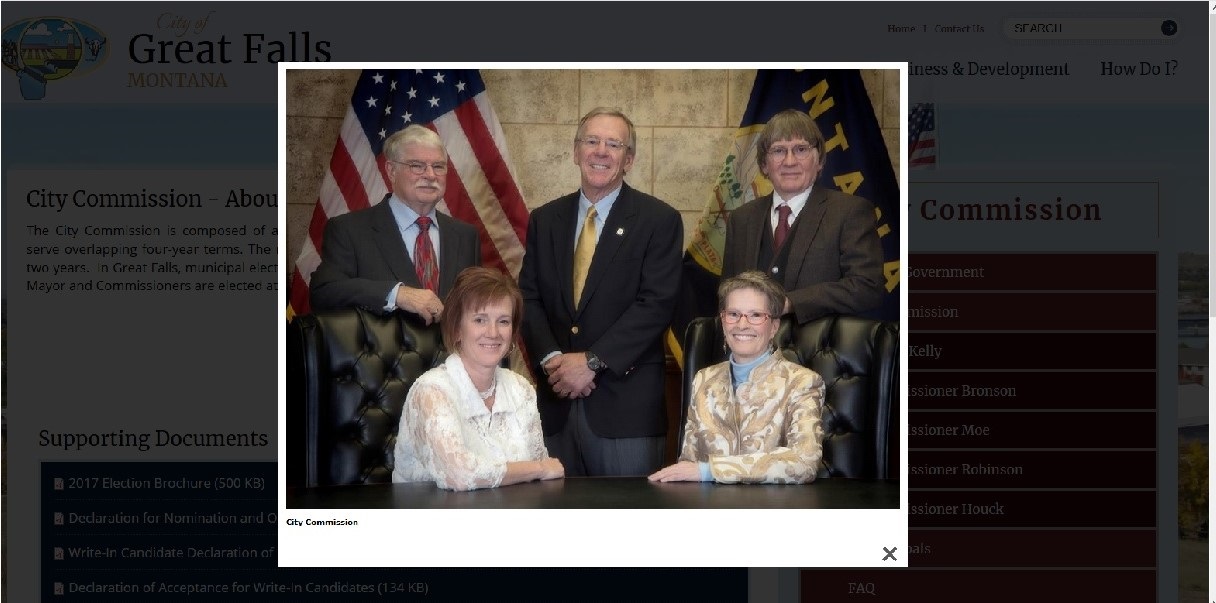The City Commission’s response to HUD findings of conflicts of interest in Jenn Rowell’s February 21 article on The Electric are a bit perplexing.
Here’s a quote from Rowell’s story: “The city is not fighting the HUD findings related to the CDBG process, but is following up in regards to HUD’s interpretation of City Attorney Sara Sexe’s comments during a June meeting.”
I found the following in HUD’s letter to the city, which contains the HUD interpretation that the city apparently took issue with:
“Finally, we are concerned with an exchange between the City Commission and the City Attorney as it relates to the 2017 allocation. The minutes for Great Falls’ June 20, 2017 Regular City commission Meeting, contain a statement by City Attorney Sara Sexe that “a representative from the Department of Housing and Urban Development had reported that there was not a conflict of interest.” That statement is false. While we do not need a response to this issue, we do want to make it clear that this office did not previously review and excuse the city of any Conflicts of Interest. We are currently engaged in that process.” (emphasis added)
The city and Sexe assert that Sexe’s comment from the meeting minutes (bolded above) is a summary and taken out of context. It is suggested that one should reference the video/audio of her comments at the meeting for the full picture.
I remember I had watched that video last year but ever curious, I just watched again. The video of the June 20, 2017 commission meeting is here:
First some background on that meeting’s CDBG funding vote. On June 6, the city commission passed the CDBG funding for public facilities projects. However, it was later determined that was an invalid vote because it passed with a simple majority of 2-1-1 (Commissioner Burow dissenting, Commissioner Houck abstaining, Commissioner Bronson was absent).
So on Jun 20, the CDBG funding for public facilities had to be put to a revote before the commission.
At that meeting, Commissioner Bronson was present. He spoke of a May 25 memo in which he detailed his family members’ involvement with organizations requesting CDBG funding and his assessment that there is no conflict of interest.
Bronson begins this discussion at @ 2:07:05. He further states @ 2:08:02 that the memo is on the city’s website. At @ 2:11:00, Bronson claims that the memo along with City Attorney Sexe’s concurrence letter, was provided to HUD. Sexe agrees with that in the meeting.
At @ 2:11:2, Sexe states, “Your letter and mine, indicating agreement to there being no conflict under the regulation that we evaluated as to your son (Commissioner Bronson’s son) were provided to the representative of Housing and Urban Development who spoke to our CDBG administrator and verbally indicated agreement that there was no conflict.”
I’m left scratching my head over why the city and Sexe feel it necessary to dispute HUD’s “interpretation” of Sexe’s statement. I don’t see a major difference in meaning between the meeting minutes summary of what Sexe said versus her verbatim statement. The semantics in this case seem negligible.
So to paraphrase, according to Sexe, the agreement that there was no conflict of interest (regarding Bronson family members) came from a HUD representative to the city’s CDBG administrator before the commission vote in June. HUD claims that their agency did not review and offered no such report to city staff regarding any conflicts of interest—until now. The term “any” in HUD’s response would include the Bronson matter.
Seems to me this isn’t a matter of “interpretation”—either HUD verbally advised the CDBG administrator that there was no conflict of interest or they didn’t. However, it doesn’t seem likely that HUD would do that; it’s just not their standard procedure. HUD requires a written request for a conflict of interest exception; that regulation is found in the Code of Federal Regulations 24 CFR 570.611(d).
‘Seems to me this isn’t a matter of “interpretation”—either HUD verbally advised the CDBG administrator that there was no conflict of interest or they didn’t. However, it doesn’t seem likely that HUD would do that; it’s just not their standard procedure. HUD requires a written request for a conflict of interest exception; that regulation is found in the Code of Federal Regulations 24 CFR 570.611(d).’
I don’t think HUD would state there’s no conflict without that written request. I believe the agency would keep things legitimate and legal by responding in writing and not verbally (to be more precise, orally). Further, if the city provided HUD with Bronson’s memo and Sexe’s concurrence back in May, let’s see the proof that someone with the city mailed or emailed those documents.
Ultimately the city is responsible for knowing the rules and playing by them. It’s troubling that we now find a history of the city commission ignoring federal regulations. Instead of making HUD the enemy for taking away money from the self-described deserving organizations, perhaps we should consider all the organizations that sought funding through the years, but didn’t stand a chance because the skewed process and actions of the city commission.
By the way, an extensive search of the city’s website did not produce Bronson’s memo even though he claimed it was posted there. Normal city procedure would put it in the meeting agenda packet for the date CDBG funds are voted on, but it’s not there.
The city did provide Commissioner Bronson’s memo upon request and it is available here.
Below are links to CDBG items in the agenda packets for June 6 and June 20.
https://greatfallsmt.novusagenda.com/agendapublic/CoverSheet.aspx?ItemID=449&MeetingID=34
https://greatfallsmt.novusagenda.com/agendapublic/CoverSheet.aspx?ItemID=495&MeetingID=36



